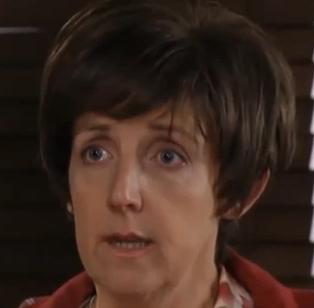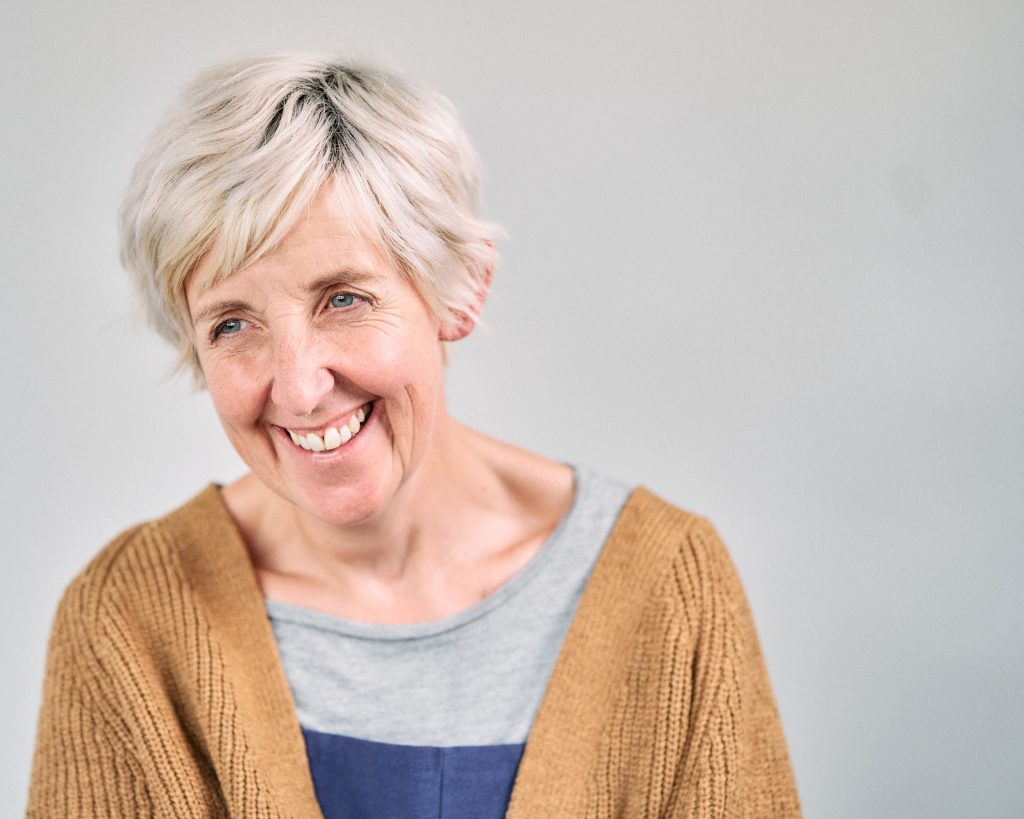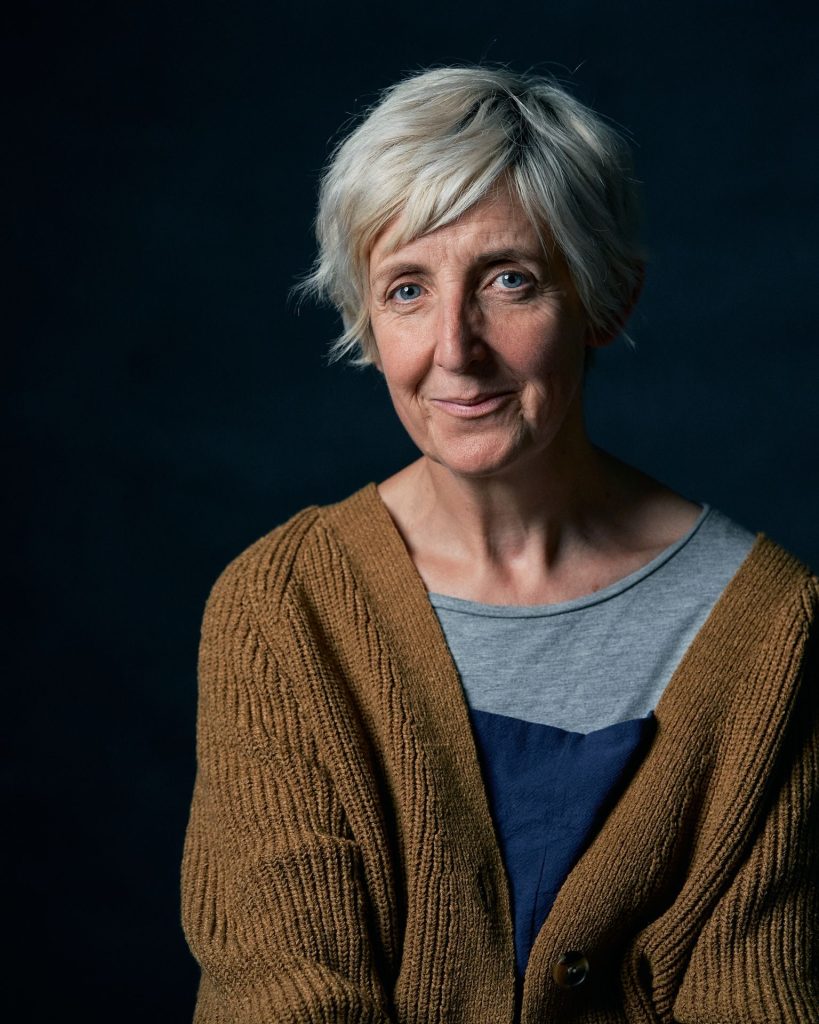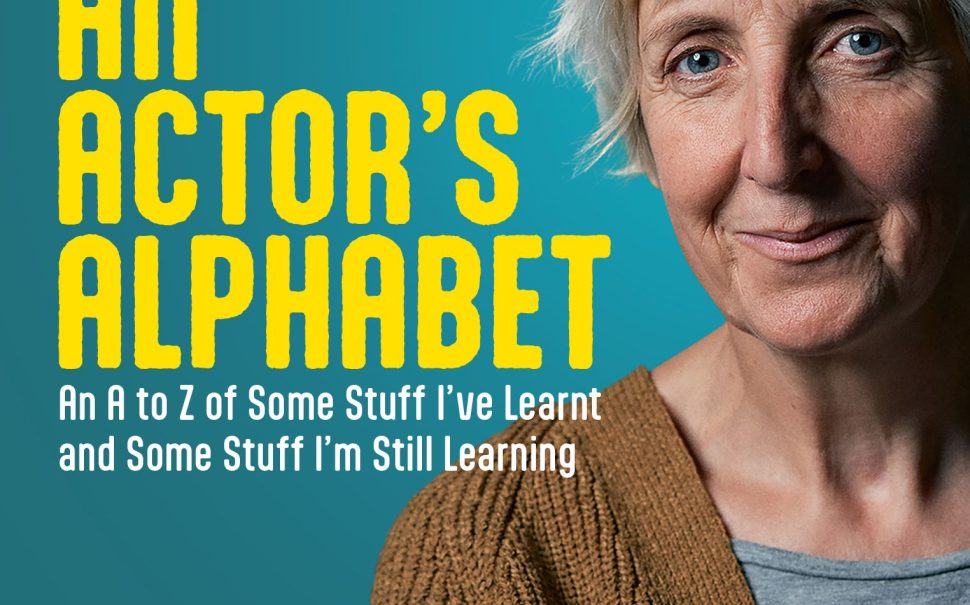It’s been almost a decade since Julie Hesmondhalgh swapped the cobbles for other TV sets and rehearsal rooms. Now she’s ready to divulge everything she knows about show business. The BAFTA-nominated actor sat down with Mancunian Matters to discuss her new book, An Actor’s Alphabet.
An Actor’s Alphabet is all about what you’ve learnt and what you’re still learning. Which role in you career has taught you the most?
Coronation Street and Hayley was a little bit of a baptism of fire. I hadn’t had a huge amount of television experience before getting the role, I was 27 when I got the part – it’s unbelievable to me now that I was so young! I became quite quickly a very well-known face after total anonymity for years, and also the speed of the work there. Back then right at the beginning there was a little bit of rehearsal and a little bit more time, but even then, the turnover of new scrips: learning them, doing it, rehearsing it, shooting it, bang!
It’s been quite difficult actually, subsequently leaving Corrie, to get into a place where there’s a single camera. It’s much slower, there’s a lot more time between set-ups. It’s been hard for me to get used to that. I thought I’d be there forever if they’d have me. I thought they’d carry me over there in a box. I fully intended to be there for the 100th anniversary episode, probably set in space.

The role that I took at the end of Coronation Street in theatre was also a massive learning curve for me. I was asked by Sylvia Lancaster to play her in a play about her and her daughter, Sophie, a young woman who was murdered in Bacup, quite near to where I grew up in Accrington. It was a really delicate two-hander in the Royal Exchange studio. It was completely life-changing for me. It gave me an appetite for telling other kinds of stories about people other than Hayley, but also being back in theatre and having that experience of live art again. Something that had absolutely died in me, I realised was just sleeping.
You say in the book that it was this experience working on Black Roses that made you realise you needed to leave Coronation Street. How did it feel to see that storyline played out on the soap?
It was absolutely amazing. I’m so passionate about the ability and reach of soaps, and the way that they can just get into people’s living rooms and into people’s hearts and minds so effectively. I think it really changed things, like these storylines can. People really fell in love with the character of Nina and really cared for her. The obvious similarities between Nina and Sophie were there for all to see.
A wonderful thing was that my husband, Ian Kershaw, is a writer on Corrie and we’re both patrons for the Sophie Lancaster Foundation. He wrote a beautiful play called Porcelain about the trial of the murderers and he was the main writer of the storyline on Coronation Street. It felt very much a closing of a circle in terms of our very passionate involvement with that charity and in that story.
This is your second book now, and in it you describe your process for when you approach a new acting role. Can you describe your writing process? Has one informed the other?
My first book was a working diary. I was commissioned by Methuen Drama, who are part of Bloomsbury, to write a diary of my working live over a year from the end of 2016 to the end of 2017. There had already been one by Simon Stephens, the playwright, and there was one by Joan Littlewood as well. I really, really loved writing that book and I got so much out of it. There’s nothing like having to write about your working life to make you do things. People were like “Oh my God, you do so much!” And I’m like “Well, people aren’t going to buy a book that’s about me sitting in watching Love Island, but believe me, there’s plenty of that that goes on as well!”
The thing that I got a lot of good feedback from that book was the sections of it where I talked about process and mental health, and also my beliefs about the actor’s job to tell stories that matter and theatre’s job to hold a mirror up to society. Those are the things that seemed to resonate with people, especially younger people and emerging artists – who can be from any age. So I started to think about maybe writing something that was a little bit more succinct, that had a structure to it, and was mainly advice-based.
It was about knuckling down and trying to do three chapters a week and keep on top of it. I didn’t have any word limit for each one, so some are quite short and pithy and some are a bit lengthier. I delivered on time, amazingly, with very little stress. To the point where I’m like, “is it alright?” I feel like I didn’t sweat enough blood, sweat and tears to have warranted all this attention for it.
I was very cautious because I’m very aware that I still have so much to learn. Although I’m very long in the tooth and I’ve been acting for 30-odd years, I’m learning all the time and things are changing so quickly, so wonderfully and so dramatically. Even since I left Coronation Street, there’s so much happened. The #MeToo Movement has really changed things within the industry, as has Black Lives Matter. There’s more diversity, there’s more representation. Jack McTaggart’s lecture about disability shifted things overnight. I wanted to write something that was about how you never stop learning, as well as hopefully imparting a bit of stuff that I’ve learnt.
There were parts of it that I had very little knowledge on because of my own privilege. In those chapters, I reached out to people. There was an amazing response to a question I just popped on Facebook about parenting and caring while being a performer. I got so many replies to that, it’s such a hot topic for people, and will continue to be.
You mentioned #MeToo, and you talk quite a lot about the revelations of women in Hollywood in 2017 in the book. We’ve seen the impact this had on a global scale, but how did the movement translate to the industry in the North West specifically? How did its repercussions manifest up here?
It has been global, but it’s gone right into the heart of rehearsals and TV studios too. The obviously result of that has been the rise of the intimacy coordinator. There’s been a lot of controversy around that recently and what I try to do in a lot of my book is encourage older people, like myself, to not become a dinosaur and not react against things that are changing.
I’ve done a sex scene in Cucumber which was very much “get on with it”. That suited me absolutely fine because I was with an actor that I really trusted. I felt safe which made it easier in that way, but that power balance is obviously very often skew-whiff. Something had to be done to address that. I know it feels extreme if you’ve been doing it for years with very little fuss, but it has to be for everybody in order to keep everybody safe. If you’re an old bloke who’s been doing it for 40 years and you had the power in that room to say to a much younger actor “let’s just go for it”, that person doesn’t have any power to say no to you. If you have a rule that is for every single rehearsal room and every single actor, then there’s no room for people to be exploited and abused as they have been, constantly.
Our industry – with all of its ideas of freedom of expression and liberation – there has been a huge cost to the most vulnerable people in those situations. Although it is a nascent movement, it’s something that’s very, very important to address.
I’m a passionate trade unionist. I think that a lot of what’s wrong in our industry is not seeing ourselves as workers who have to fight for our rights at all costs. Equity, our actors’ union, has been absolutely fantastic in putting this stuff front and centre, and really providing help and support for people who feel like they have been exploited.
In the book, you champion the notion that everyone should have access to art, culture and creativity. This can be seen in your work with Take Back, the political theatre company you co-founded. What exciting things can we expect from Take Back in the near future?
On the 28th November at 53Two, we’ve got our next evening which is Take Back Our Bodies. We are making this in response to the reversal of Roe versus Wade in America and the huge ramifications of that for women over there and globally, because when things start in America, they spread. Initially, it was very specifically about that, but we’ve opened it up now. We’ve got pieces about the hypersexualisation of East Asian women in our culture. We’re having stuff about the situation in Iran now with the forced wearing of the hijab, but also for hijab wearers here, because it’s not one or the other, it’s a matter of choice. We have got pieces on disability. We try and give as much as we can a wide voice to people who have got something to say on whatever issue that we’re dealing with. We’ve got a piece on trans right because you can’t talk about the body as a battleground at the moment without touching on that. We have a trans writer writing something for herself and a younger trans woman which I think would be amazing.
It is my happy place — the bit in the middle between activism and acting. Take Back absolutely embodies that for me. What we’ve done is created a community in Manchester of like-minded people, and we’re really passionate about trying to change things through theatre, through arts, through culture. I’m very proud of what we’ve achieved with it. I have gained so much more from it than what I’ve put in.

You talk in the book about the need for drama schools to update their practices and become more inclusive. Do you have much hope for the future and sustainability of these institutions in the face of this growing need?
I do have a lot of hope actually, because I think things are really changing and you can see it happening.
Change is always painful, it’s always difficult. It often means huge upheaval, especially for institutions that are quite entrenched, but I see it. I see it in the people who are taking over leadership of top drama schools. I’m seeing it in the abolition of drama school audition fees. I’m seeing it in the wider range of bursaries that are available to people from low-income households. I think there’s a real appetite for change that is being industry-led.
There’s still a long way to go. There always is in all these things. When I left Coronation Street, the first couple of plays I did were made and created and acted in by exclusively all-white creative teams. I didn’t bat an eyelid. Now if I went into a rehearsal room or onto a TV set where everybody was white and non-disabled I would be really, really shocked – and that’s just in the last nine years. There’s been this huge revolution in the way that we expect rehearsal rooms and stages and screens to look. Drama schools have to reflect that. In hiring people within drama schools who are practitioners, I think that’s a massive step towards knowing what the industry looks like now things have changed.
What is one thing that you hope people will take from An Actor’s Alphabet?
I hope that people take hope, actually.
When I have spoken to groups of drama school students, or soon-to-be graduates, or people who are emerging into the industry, there is such a despondency. I don’t know whether there’s some sort of culture of realism — that this is a hard job and hard life — but I think that what gets forgotten a lot is how absolutely wonderful and privileged a place it is to be doing something that you love for a living, even if that living is precarious. Even in the long periods of unemployment that you might have to endure, you will be around like-minded people who can help and support you, who are engaged and interested. We’re very lucky to be a person who knows what they want to do and has a passion. That’s a massively underrated privilege in itself.
I talk to a lot of people and I offer myself up as somebody that they can come to for advice or help or support. Very few people who take you up on it. I hear from agents that young actors don’t turn up to auditions: they don’t want to, they don’t feel up to it, they’re too tired, too broken, whatever. Yes, there are a lot of actors out there who are wanting to work. But actually, the people who’ve got a little bit of joy in them, a little bit of hope, a little bit of drive, a little bit of something extra, are few and far between. Make sure that every single day you make a little step towards living the life you want to live as an artist and being clear about what you want, where you want to be and what matters to you.
I’d also say that because you are in the industry, join a union. If I have one piece of advice, every single good thing about this job — from breaks to holiday pay to insurance to people supporting you through sexual harassment or bullying — it all comes from our union. We are our union. It doesn’t exist separately from us. The Greater Manchester Equity group is so vibrant and so wonderful. They will welcome you with open arms and it is absolutely worth every penny of your subs. You will get so much more than you put into it. It’s about community, rather than just an individual trying to make it.
And finally, thinking back to something you mention in the book, what can you tell us about the ethics of the scientific study of sentient beings and the well-being of laboratory mice?
My friend Maisy wrote a play about exactly that as part of her PhD, which is a hard sell! Just in this short script-in-hand performance in London, it really gave you a sense of what it is to work in that field: the connection they feel to the animals that they’re experimenting on, the importance of safety and health not just to the animals but to the welfare of the people who are doing the experimentation as well. Theatre is such a quick and clear way to get your point across. I really believe in art being a way of learning and teaching across all the different disciplines and all the different subjects. I did learn a massive amount from that!

An Actor’s Alphabet is published by Nick Hern Books and is out today.




